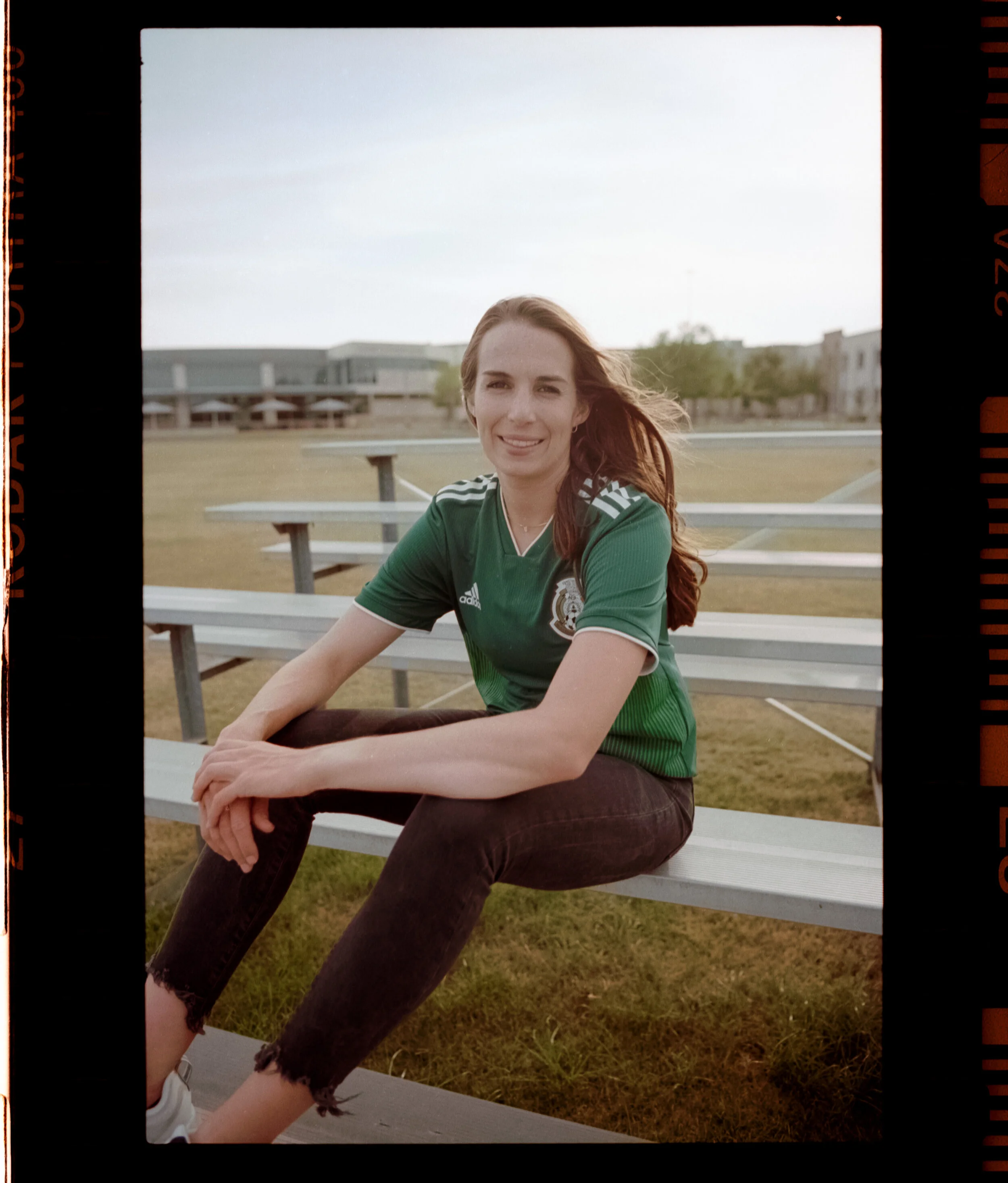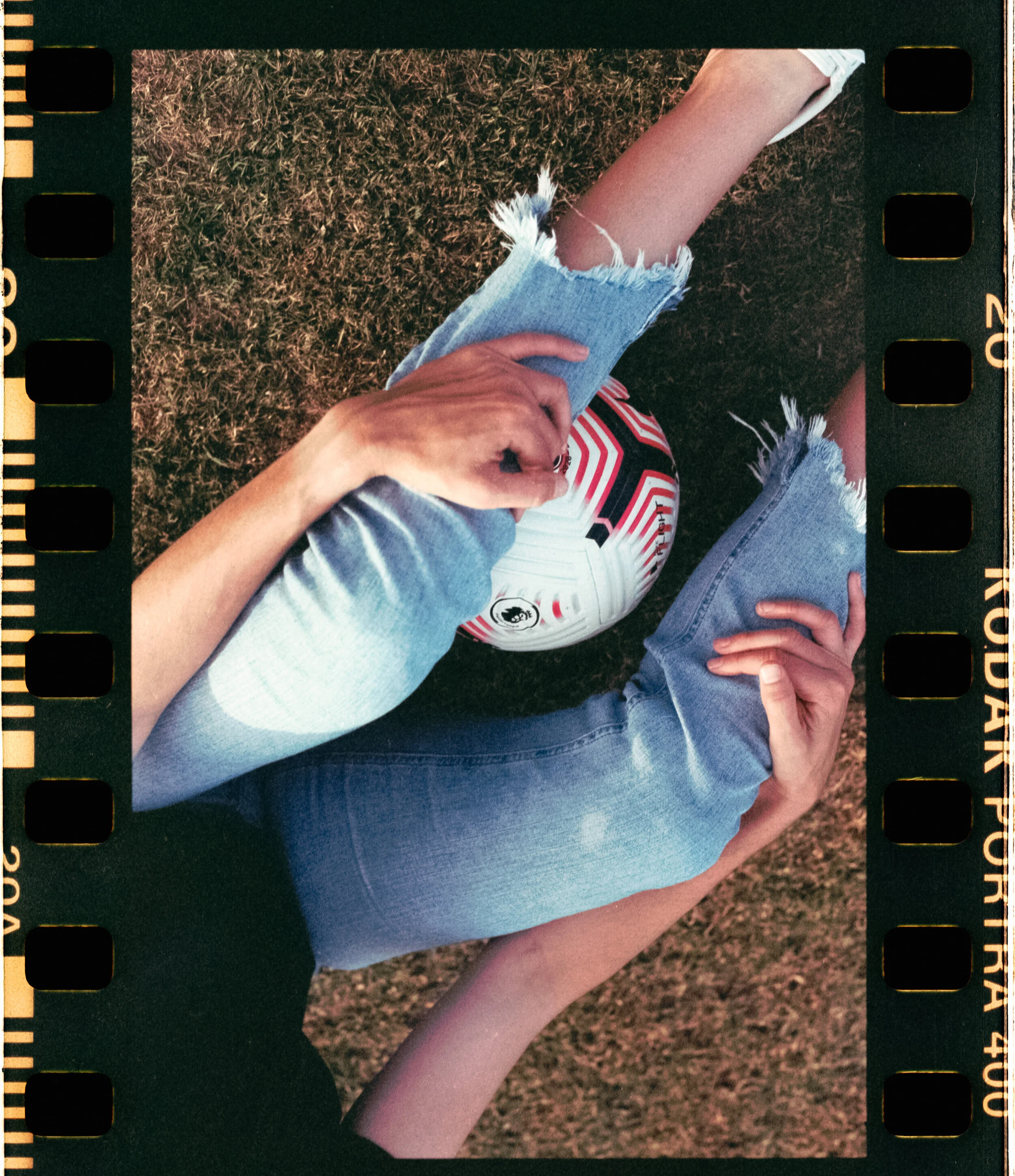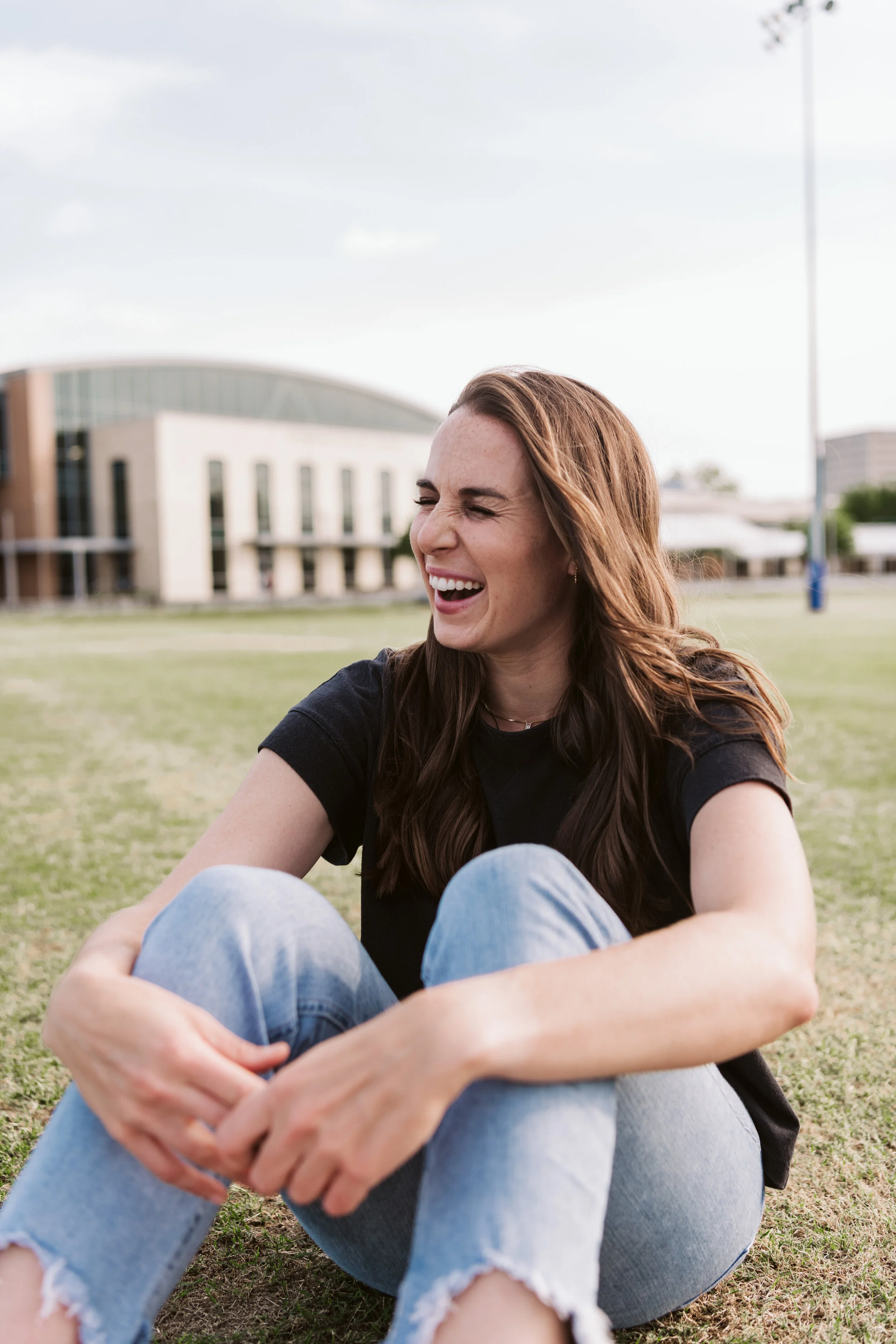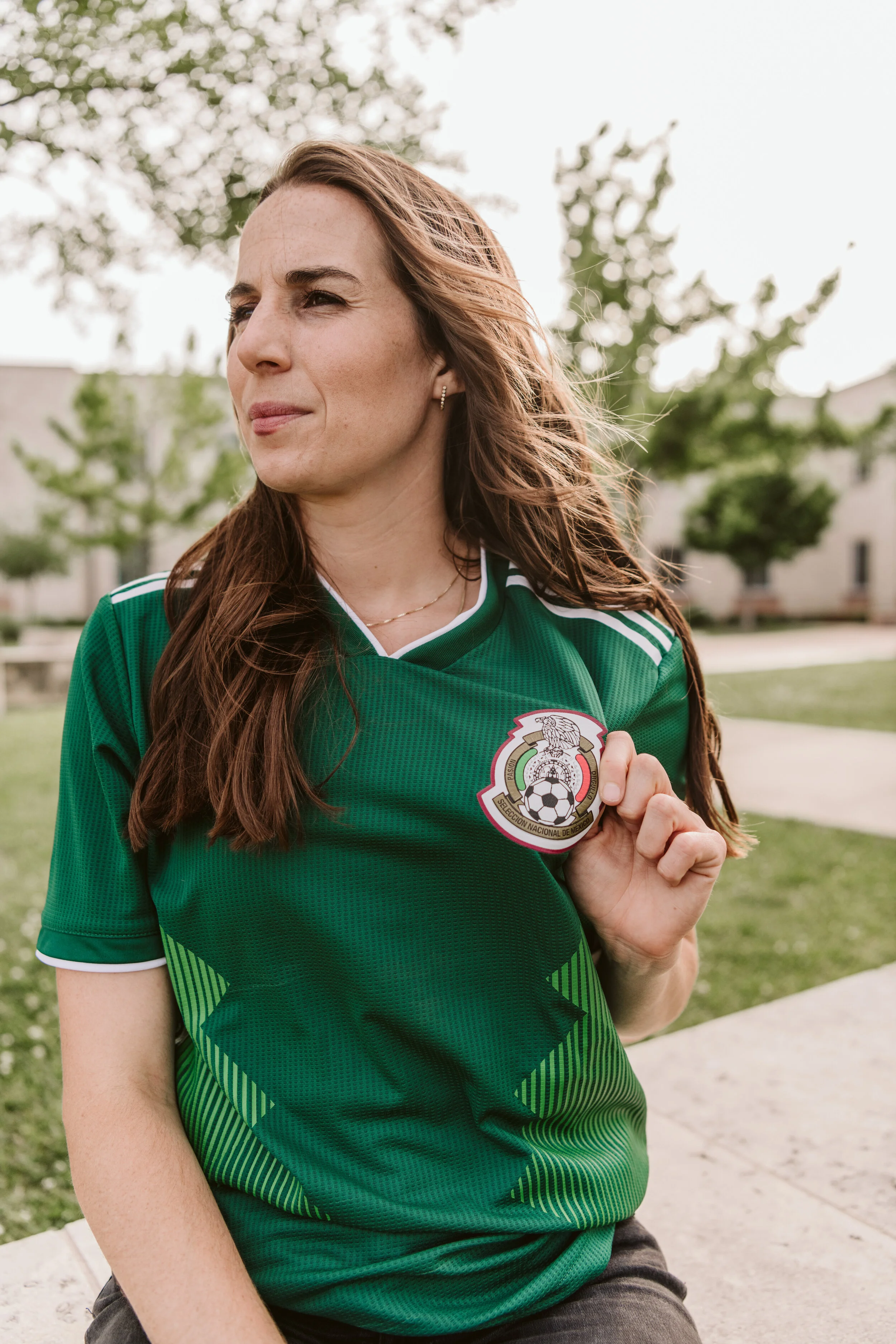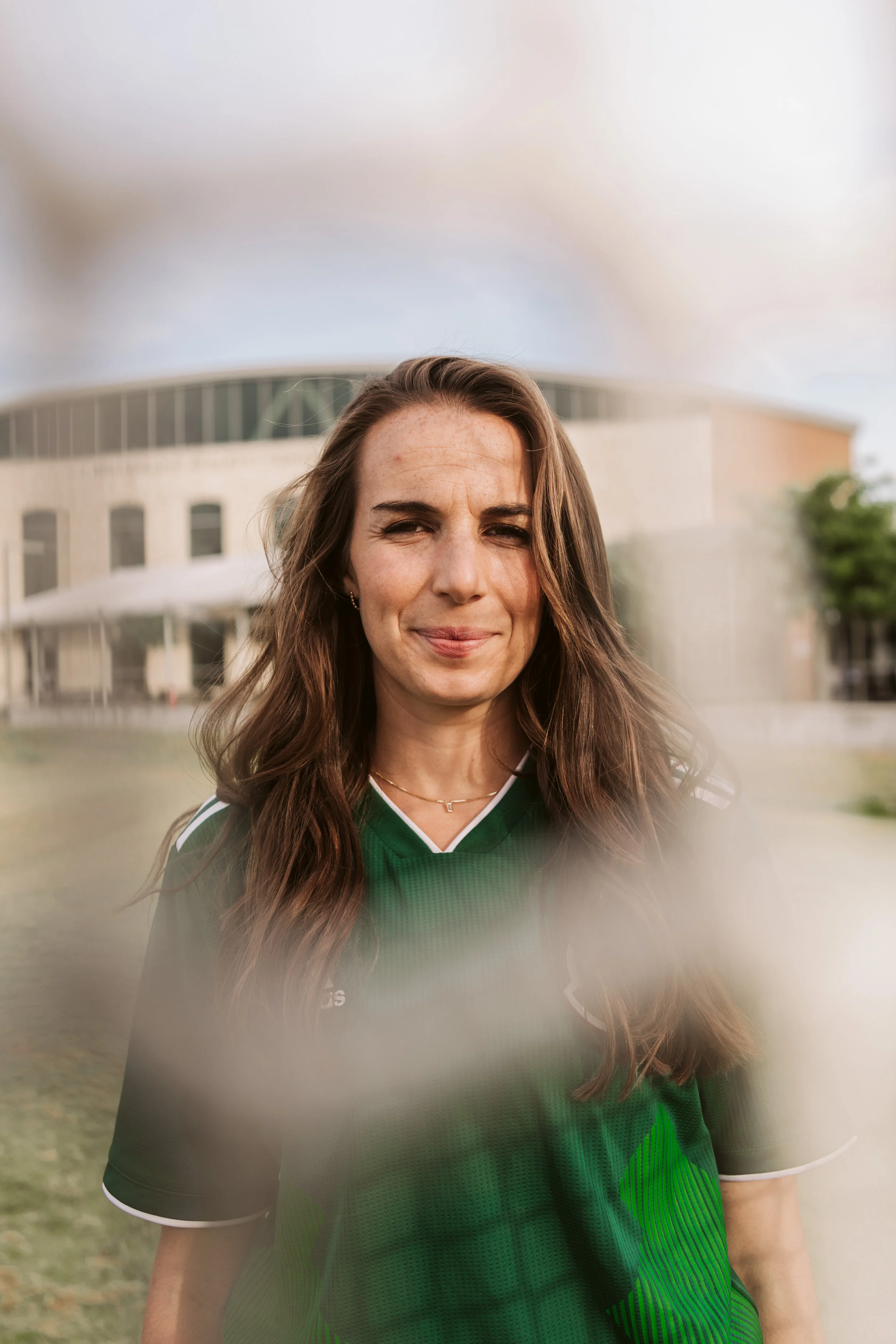Dream

Photography by Diana Hernandez.
The Messiah Method. It ended up being a coincidence that Rachel Stelter would have such a personal connection to this coaching system, but ever since stepping away from the field, she’s been working tirelessly to build a solid foundation for girls in Houston to chase their dreams. From playing abroad in the Czech Republic and France to being part of the Houston Dash, her career has set her up to usher in a new generation of players into the professional game.
Rachel’s soccer journey began all the way out in California, playing for SoCal Blues, one of the most prominent clubs in the state. In 7th grade, she moved to Houston, Texas, where she played high school soccer for John Cooper School as well as club soccer.
“My parents wanted me to go there for education. It was a private school, and they were very adamant about not falling into the materialism there, but overall it was a school that really stressed academics and college prep,” remembers Rachel. “So, honestly, my time in high school was wrapped up in wanting to do well in the classroom while also balancing playing soccer. That was my life.”
When it came to applying to university, Rachel was set on going to Dartmouth to play at the college level. “Dartmouth was my dream school. During my spring break of junior year, they watched me play at a college showcase in Las Vegas, and I played the best game of my life. And this was before we had internet on our phones, and you could only access your email on a computer. So after the tournament, we went on vacation, and I just wanted to go home to check my email. Finally, when I got back, I saw they had invited me to visit.”
While she had initially been sure she wanted to go to Dartmouth, her campus visit would eventually make her reconsider her decision. An offer from Davidson College in North Carolina would end up changing the course of her life and her career.
“Davidson ended up giving me an early offer, but I had to send my application before the beginning of the summer of my senior year. I was on the way to Young Life Camp in Colorado, and I remember being on my cell phone telling my dad back home how to write my essay for the application. Eventually, I got in, and everything worked out.”
At Davidson, Rachel went on to study Psychology, and she excelled on the pitch as a defender through her four seasons playing in college. “It was a great experience,” says Rachel, “but I felt like I was being pulled in two different directions. It was a lot of tension because sometimes you’d want to sleep before a big game, but you also have homework to finish at 3 A.M.”
After graduating, Rachel still felt unsure of what path to take, but she chose to stay in North Carolina to train for one summer after receiving an offer to play for AC Sparta Praha.
“I actually met Lauren [Rivas] while I stayed to train in North Carolina with the Charlotte Eagles. I played for the team during two summers in college, and that was where I learned that playing abroad was even a thing. Back then, it didn’t feel like that was even an opportunity for women, although now I feel like that’s popping up. Now my newsfeed is full of girls signing abroad, but before, it wasn't as prevalent. There didn’t seem to be a clear path, and I was kind of figuring it out as I went, and a lot of it was just through connections, friends, and the community. For my first professional team, my teammate in Charlotte said we had both been extended an offer to be trialists at Sparta, so I just went. I had no idea what I was doing.”
The transition to playing abroad at 21 was not an easy one, both on and off the field.
“The club ran the entire city. They had a hotel where they let us stay for free and a restaurant we would go to for all of our meals. The quality of play at Sparta was incredible. On one off-weekend, we had booked a trip to Vienna, and as we were about to get on the bus, we got an email telling us that we had not passed the trial and that we had to leave the hotel.”
“It was hard because that was the first time I had really been told I wasn’t good enough,” says Rachel. Fortunately for her and her teammate, their contracts were picked up by Sparta’s B team, and they were allowed to stay for the rest of the season.
“We were given a one-bed apartment that we had to share, and it was quite the experience. I have a loud voice, and after one week, we ended up getting kicked out because the Sparta manager said our neighbors didn’t like having two American girls in the complex. I was definitely a fish out of water -- a new language and new culture. We got moved to another apartment, and we stayed there for four months. Eventually, I got to learn the beautiful parts of that city and their culture, and I made friends that were warm and welcoming after breaking through that initial barrier between American and Eastern European culture.”
At the end of her contract with AC Sparta Prague, Rachel would end up returning to the United States eager to continue her pro career. She joined the Boston Breakers’ reserves in the NWSL to gain fitness after an injury, and after playing there for a few months, she had the chance to earn a pro contract in France.
“I was in Boston for a couple of months. One of my teammates got offered a contract in France, and she didn't want to take it, so she referred me. At the time, we were all each other’s agents. The top players at the time had agents, but for all of us who were trying to make it from the bottom, we all had to help each other out to find these opportunities.”
Two weeks later, Rachel was on a plane to France to play for Grenoble Foot 38.
“The first two months were hard. As soon as I landed, I had to go see the doctor for my physical. And I’ve always liked my body shape, and I always got told I’m athletic. And then I got there, and they told me my BMI was too high. I had never been told that in my life, and it hit me a little harder than I was expecting. They put me on a special cardio plan, and we’d have weigh-ins every couple of weeks. Being vulnerable like that was pretty hard for me the first two months.
With many of Lyon’s second-team players moving to Grenoble Foot 38 during the season, adjusting to the level of play in France was a tough task overall. However, hearing that Orlando Pride were interested in her development and getting to play against Alex Morgan in France gave Rachel the motivation she needed to close out the season in great form.
“We were playing Lyon in their stadium, and Alex Morgan was there. I was pumped that I got to play against some of the best players in the world. That was the best game ever in my life, and it gave me a lot of confidence to continue to pursue my dream.”
At the end of her contract for Grenoble Foot 38, Rachel would end up having ankle surgery over the summer. Eventually, she found her way back to Houston in 2018, the city that had initially seen her career take off.
“I loved getting to experience other cultures and get to go explore different countries, but I could just tell that I wanted to stay in Houston and start to put down roots,” says Rachel. “My faith is my number one priority, and I believed that God was calling me to stay in Houston. If I was to continue playing soccer, then my only option was with the Dash. So, I went to the tryout scared out of my mind but believing a door would open. From the tryout, I was invited into the preseason and was there for the whole year as an uncontracted player.”
Being an uncontracted player for a team in NWSL was quite an experience, to say the least.
“I was happy to be there, and it was really cool because I felt like I was supposed to be there. And so I had the mentality of just doing anything to help out this team -- be a light on this team. It was a thing of ‘how can I build up the players on the team so that they can play their best.’ I was just honored to be there and be a part of it. In the day-to-day, it felt very similar to being a contracted player, but there were still some things that were like, ‘okay, but you're not actually contracted.’”
Despite getting to train with the Dash first team and continue her soccer career, there were still difficult moments for Rachel, especially dealing with not having a full-time contract.
“I had to overcome a lot of pride. We had our training tops, and everyone had their number on it, and mine was just blank. I also remember we had a VIP event at Pitch 25, and I was invited to come, so I was really grateful. But I still felt a little awkward since I hadn’t earned a full-time contract. I didn’t feel like I should really be there. They had different autograph stations, and the team had handed out posters to the fans with all the players’ headshots. Whenever some fans would reach my station, they would sometimes pull their posters away. It made me sad, to be honest. There were definitely some moments that were hard with pride.”
Although there were challenging situations as a result of being uncontracted, Rachel’s time at the Dash was a positive period in her life, and it also led her to new passions that have come to shape her career away from playing.
“When I was with the Dash, I had the opportunity to travel to Mexico with an organization called Ambassadors. They invited me and a couple of other pro players and top college players to go to Puebla because they were adding a girls’ side to the club. Ambassadors compiled this team of players, and we played against three Liga MX Femenil teams. All these fans would come, and then we would put on clinics to draw interest from girls who might want to start playing soccer. That’s when I realized how much I cared about growing the girls' side of the game and using it as a tool to empower.”
After returning from her trip to Mexico, Rachel immediately went to work to set up soccer camps for girls in Houston. After forming a pickup group with Dash teammates Nichelle Prince and Bianca Henninger at Toros HTX soccer fields, Rachel and her teammates came up with the idea of providing a space for young girls to play pickup soccer.
“I feel like when girls go into club soccer in America, playing pickup is not really part of the culture. Going out and playing this street style of soccer is not too common, so we started these sessions with the idea of providing this type of space for young girls.”
Although Rachel has played a small part in building this community for young girls in Houston to play pickup soccer, she has also recently become more involved in coaching. Currently, she’s coaching at Episcopal High School, and she has bold ambitions for the future.
“It’s crazy that now I coach about 50 girls in our program, and I just want to keep growing it. I recently read the Messiah Method. Messiah is a Christian school in Pennsylvania, and between 2000 and 2010, the men's team and women's team combined posted the best record in NCAA soccer. They had seventeen Final Four appearances and eleven national titles. And it’s funny because the coach who built this program was actually the father of my roommate in Prague -- small world. But in this book, it talks about the steps they took to become the best program in the country. And that’s what I want to do here.”
“My aim is to be the best program in Houston to play high school girls soccer. It doesn’t mean we’ll have the best record, but I want to turn the program into the best when it comes to how we develop players’ characters, how we invest in their faith, personal lives, and how we also train and play.”
For someone with vast experience on the balance that it takes to make it to the pros, as well as someone who’s personally seen the emotional and practical intelligence that the women’s game requires, Rachel is more than capable of achieving the goals she has set for her program. In the process, she can help guide a new generation of girls to not only become star athletes but also well-rounded individuals.
Over the past year, Rachel has been studying to become a licensed U.S. Soccer coach, and she has also kickstarted her own training company in Houston, which she hopes will give even more opportunities for young girls to pursue their dreams on the field.
“Chasing after a dream is amazing, it’s rewarding, and it’s fun,” says Rachel. “But there are also so many hardships, and it’s important to be prepared as a person.”
“We all have to look out for each other.”
Photography by Diana Hernandez.

